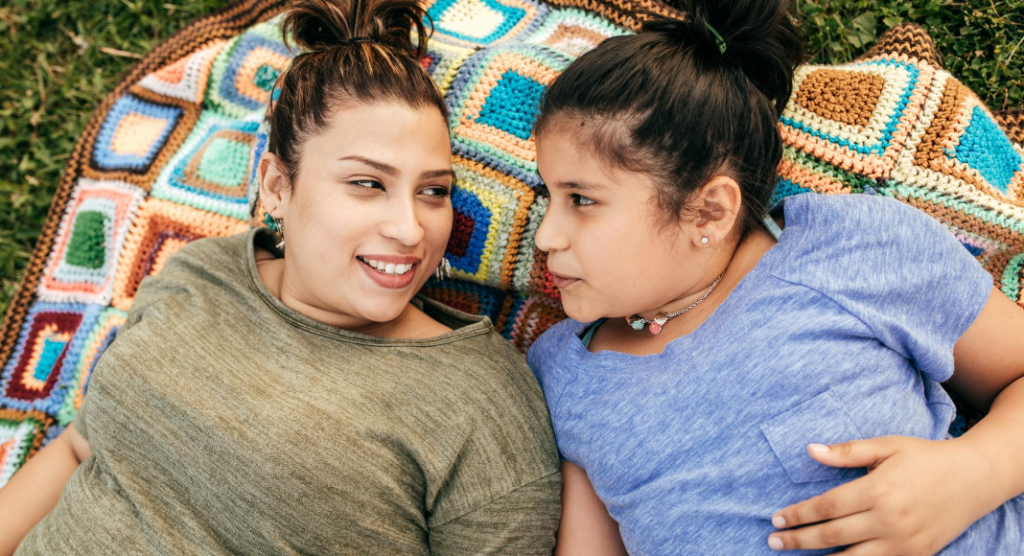If my time as a Mental Health Counselor and mother of four has taught me one thing, it is that open communication is essential for fostering a healthy emotional foundation for our kids. This month, hundreds of children will be starting back at school, in person, while hundreds others will be continuing remotely. Some haven’t spent time with peers in months. Others have developed a safe routine that will completely be upended upon the return to school. Regardless of September’s classroom setup, your kid(s) need to feel comfortable talking about what awaits them in the next few weeks. Here are some recommended dos and don’ts for that conversation.
Do Bring It Up
This is the season’s hot topic, and you need to have this talk with your kids. But it won’t be easy. Your kids may not be sure how to talk about it. They may also be feeling as though they should be excited to go, when that may not be the case. Alternatively, your child may feel very anxious even though s/he feels compelled to act happy. Approach the topic in a safe, and informal setting, such as the living room, car, or on a walk.

Don’t Assume They Are Feeling A Certain Way
Speaking of assumptions, don’t make them. In my line of work, I have noticed that it is easy for parents (myself included!) to overly guide conversations. Without even realizing it, we encourage or subliminally reward responses that we adults want to hear, instead of truly letting young ones speak from their hearts. Try your very best to hold back judgment (different than criticism) and keep quiet as much as you can. We may be surprised at where our child is at in terms of readiness for school.
Do Validate Their Response
Validation is the award-winning supporting actress of good listening. When we validate, we not only demonstrate that we have heard what the speaker has said, but we are willing to understand and accept it. Children, tweens, and teens all need to feel validated in their exploration of their own emotional experience. Click here for a quick primer on validation techniques.
Don’t Forget to Review Classroom Changes
Once you have created the opportunity to understand where your child is, initiate a dialogue about what learning will look like this year. How will it be different than “normal”? What do you know about the re-opening plan? What will drop-off and pick-up look like? How will their teacher look with a mask on? How will their remote learning curriculum look within the family’s at-home schedule? There may be so much to cover that this may evolve into a separate back-to-school conversation, but it is an important tangent to pursue. If possible, involve your child’s teacher in the conversation to expand the child’s network of support in this difficult transition.
Do Ask Questions Like Columbo
If your child is having difficulty opening up about this back-to-school conversation, try asking questions like Columbo. Am I dating myself? Check out this extremely stealthy (and effective!) method of helping others open up. You might be surprised at what you discover!
Don’t Skip Over The COVID Elephant In The Room
Aside from natural stress associated with returning to the classroom, your child may still be concerned about getting sick, or infecting others. Unfortunately our society has not been so discreet about their fear of children spreading the virus asymptomatically. This may also be a hidden root of your child’s anxiety about returning to school. Use this opportunity to highlight the science-based facts and good practices for maintaining proper hygiene.
Do Offer a “Test Run” of School
This is my favorite part of tough conversations with kids. No matter the age, kids find it non-threatening when a parent acts goofy, or wants to play. Invite your child to role play the first day of school. If the child is younger, you can also role play using action figures, stuffed animals, or dolls from the toy bin. In doing this, you may unlock other undisclosed worries or help your child feel more emotional prepared for his or her first week.
Don’t Assume The Conversation Is Over
Whenever you initiate a difficult conversation with your child, it is always best to re-visit the topic within a few days. Even if your child does not want to continue the dialogue, your efforts will at the very least send the signal that you are a viable support. As a wise cousin once shared shortly after we had our firstborn, “it is better to be seen as annoying rather than unavailable to your children”.










